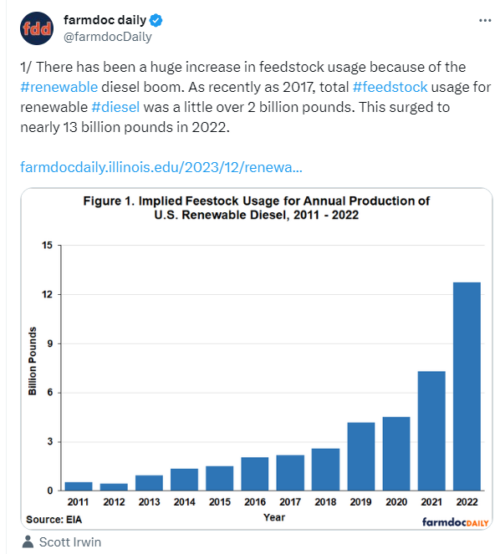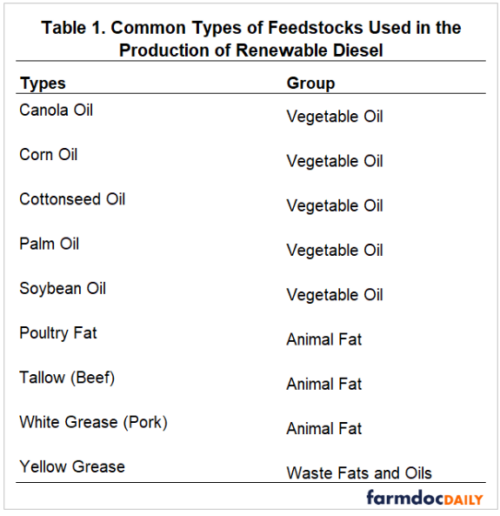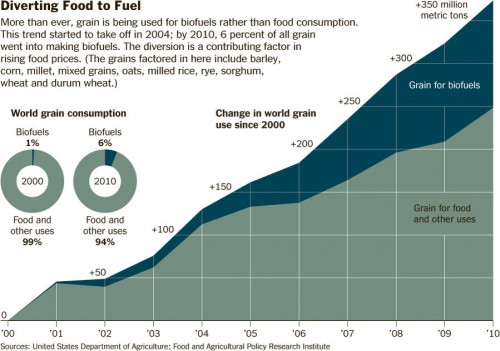Food crops for biodiesel? Apparently so.
I’ve been appalled by the vast percentage of domestic corn production used to produce ethanol—nearly half.
But I had no idea food crops were also being grown to make diesel fuels—until I saw this tweet/post:

I went right to the source: Renewable Diesel Feedstock Trends over 2011-2022
The growth in renewable diesel production capacity in the U.S. was dramatic in recent years, with capacity in the last two years expanding by 1.8 billion gallons, or 225 percent (farmdoc daily, March 8, 2023). ..In a previous farmdoc daily article (May 1, 2023), we examined historical feedstock usage trends for the combined total of renewable diesel and biodiesel over 2011 through 2022. Our most recent farmdoc daily article (December 11, 2023) article examined feedstock usage trends for biodiesel alone, and found that soybean oil dominated as a feedstock for FAME [Fatty Acid Methyl Ester] production…(see the complete list of articles here).
Here’s what’s being used for biodiesel production.

I’m OK with animal fats for this purpose. We aren’t raising animals specifically to produce biofuels.
But: Corn? Soy? Canola?
And don’t get me started on the implications of expanding palm oil production for this purpose, or what soybean production is doing to the Brazilian jungles.
This may be great news for Big Ag producers of these commodities, but could we please closely examine the implications of growing food for biofuels on food security, environmental degradation, water use, and climate change.
Note: The New York Times says our diets are to blame for ground water depletion--all those soybeans. Another reason to question using soybeans to make fuel. Biodiesel may be more energy efficient than ethanol, but growing crops for either depletes groundwater.



